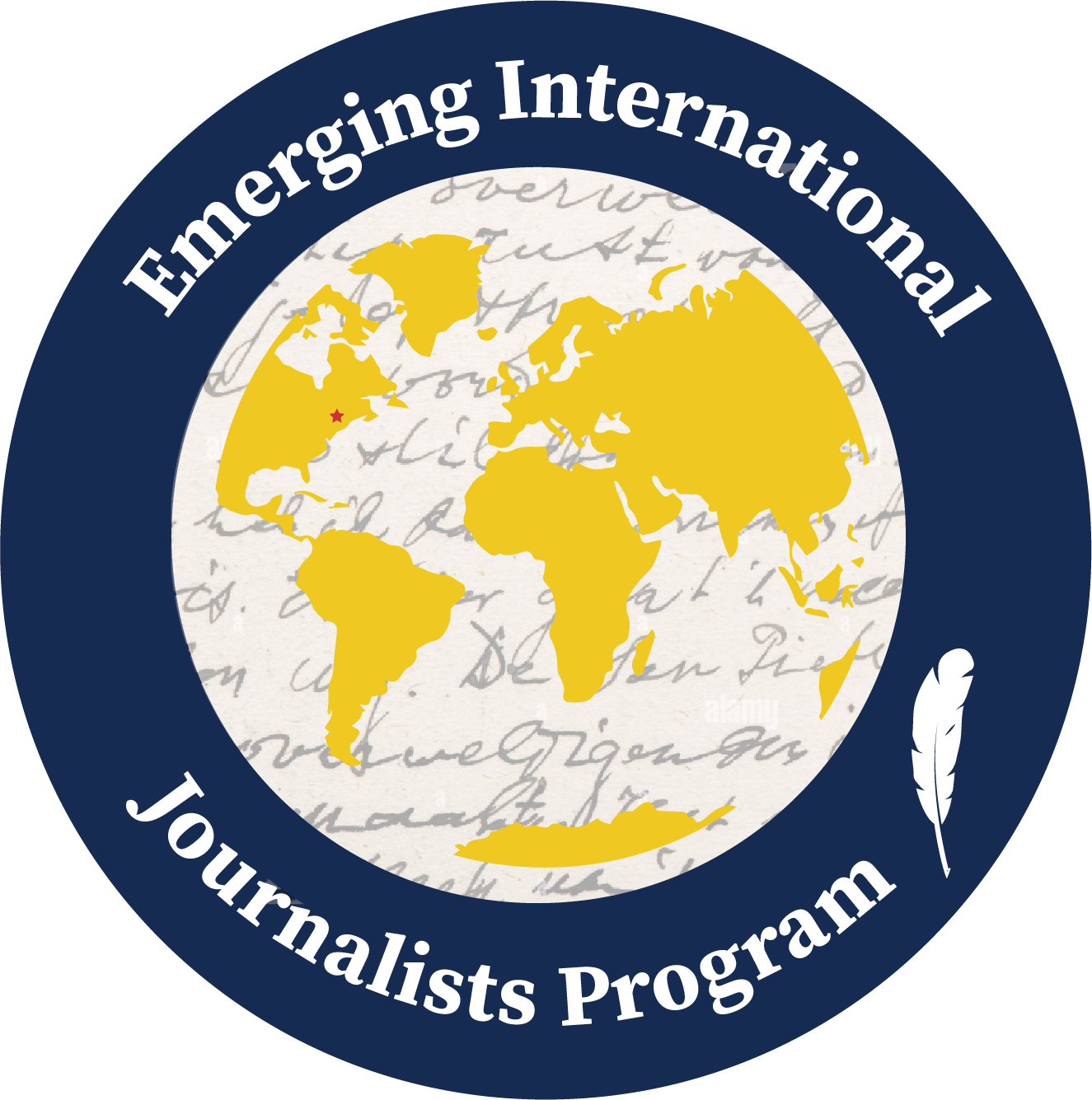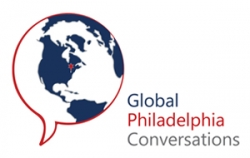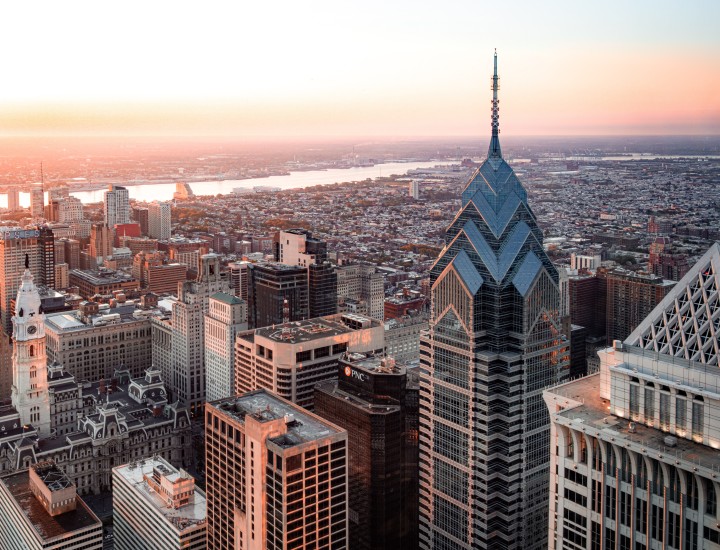Global Travels and Equitable Development with Sylvie Gallier Howard
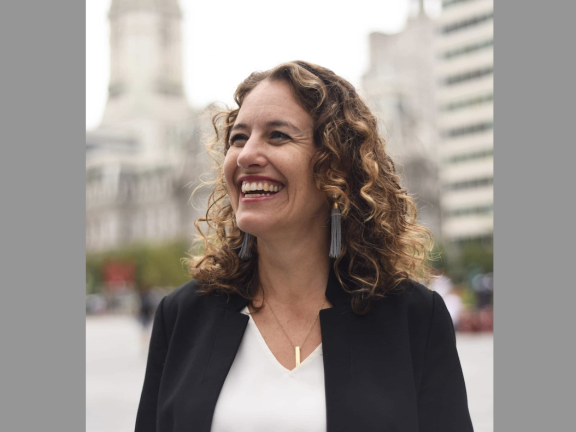
As we continue to delve into the experiences and insights of Philadelphian leaders, it becomes clearer with every story that travel has indispensable value for professionals in all sectors. A proven entrepreneur and avid world-traveler, Sylvie Gallier Howard joined GPA to share her unique personal and professional adventures across the world. Howard is the Founder and CEO of Equitable Cities Collaborative, previously Equitable Cities Consulting, a private organization that advances inclusive and equitable development. In congruence with this work, Howard has taken every opportunity to broaden her worldview and learn all she can about international initiatives that focus on equity and sustainable development.
Prior to beginning Equitable Cities Collaborative, Howard ran her own small business, led a local nonprofit, started an organizational development consulting firm, and worked for the City of Philadelphia in various roles. Her experiences as Assistant Commerce Director, Deputy Chief of Staff in the Offices of the Deputy Mayor of Economic Development and the Director of Commerce, and later leadership roles in the Department of Commerce gave her an expansive background in government and economic work.
She led strategic planning and implementation in key areas such as inclusive growth, workforce development, equitable entrepreneurship, and economic recovery. Following the COVID-19 shutdowns and civil unrest, she successfully launched two emergency grant programs to assist small Black and brown businesses. Sylvie also led the creation of a public-private partnership to promote the Philadelphia region’s global identity, and directed the City’s first comprehensive incentive analysis.
Her professional and personal commitment to equity, sustainability, and global perspectives made for an illuminating interview, and we are excited to highlight her achievements and thoughts.
Madi Costigan: Can you tell us a little bit about your professional background and how you started Equitable Cities Collaborative?
Sylvie Howard: I started Equitable Cities Collaborative four years ago. I launched it as Equitable Cities Consulting and decided to rebrand this year because I wanted to lean more into what I felt is one of the most important values for my business, which is collaboration. My business essentially is focused on building more equitable cities through three different verticals that I work in: entrepreneurship, small business development, workforce development; equitable climate action at the city level; and a city’s ecosystem and economic development. My work is in strategy around implementation and policy.
Prior to this, I was at the City of Philadelphia Department of Commerce for eight years, and my last position was Commerce Director during the first nine months of COVID. Before that, I was First Deputy Chief of Staff, where I oversaw all different facets of economic development. I have also worked in and with nonprofits that have supported entrepreneurship and empowerment.
To talk about travel, I did my junior year abroad in Quito when I was in college, and then I spent three and a half years living in Ecuador. That was where I completed my Master’s degree.I'm an avid traveler, and it has changed my whole trajectory.

MC: It sounds like there are a lot of different experiences that you bring to the Equitable Cities Collaborative and it's great to hear about the new direction you want to go in and how it's expanding. I found your blogs about your travels to India and its socioeconomic initiatives to be very insightful, and it’s clear you were able to get a lot out of your time there. How did you get involved with the U.S. State Department Professional Exchange Program and what led to you traveling to India specifically?
SH: We actually had a vacation in India in the winter from 2023-2024. Lauren Swartz from the World Affairs Council, which is one of the partners for the State Department Program, knew that I had a background in entrepreneurship, but also in gender studies, which is what I did my Master’s on. A fellow was coming from Kerala, India, named Anu, and she asked me if I would want to host her because of her interest in gender and entrepreneurship, and also because she knew I'd been to India. That gave me the cultural context I needed.
I hosted Anu professionally, and in that program, if you host somebody, then you are often able to have a reciprocal exchange, and that's how I ended up going back to India, just a little over a year after I'd gone on vacation. It was a very different experience being there. I was like a sponge, soaking up all of the learning that I could.
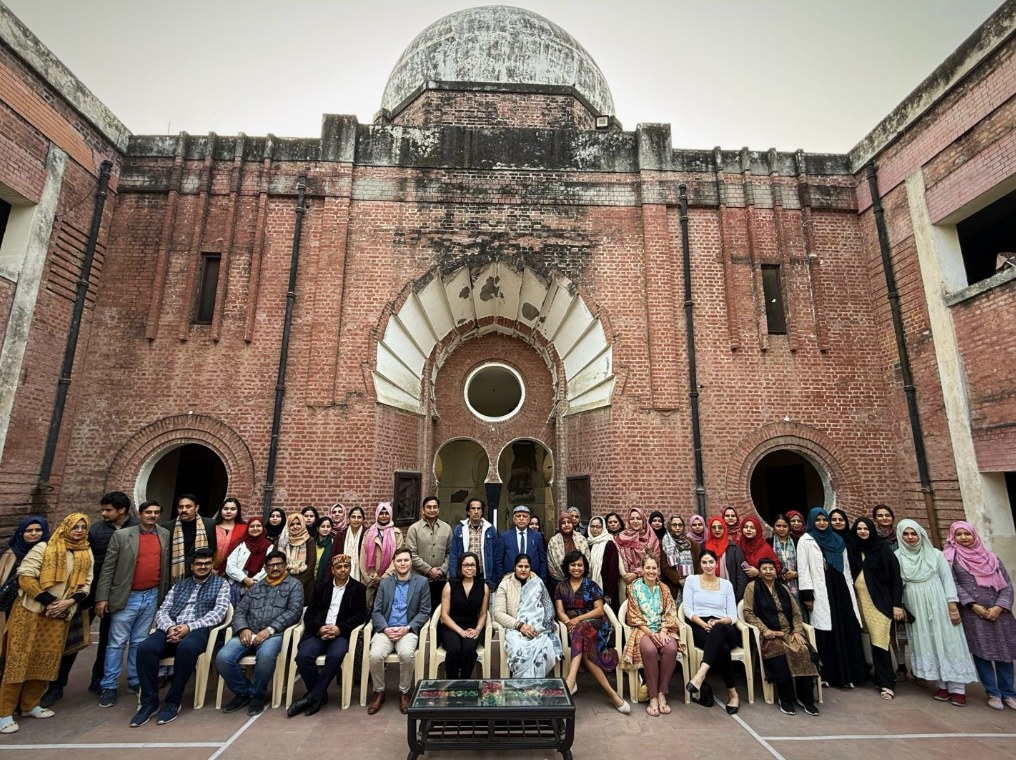
MC: How would you describe the benefits of your exchange with your fellow, Anu Maria Francis? What insights was she able to offer as a citizen and professional?
SH: In my business, I’m the only employee, but I changed the name to Collaborative because I work with a lot of partners. This means that my days are spent on Zoom calls or facilitating something, but oftentimes I'm popping all over the place. One of the main things I did was connect her with lots of different people that she could meet with while she was here, and I invited her to join some of those meetings and have some on her own. We had her over for lunch at our house, and she got to meet my family.
I took her to a United Way conference, where she got to see the mayor speak. I took her to visit with different people that worked in the space of entrepreneurship, and she got to meet women entrepreneurs and hear directly from them about the barriers they'd faced. It was great, because when I went to visit, I got to meet her husband, and it felt like visiting an old friend.
She was often reflecting on the difference between how things work in the U.S. and back in India. She then set me up with meetings on her side, and I got to really see firsthand what she was talking about. We've definitely kept in touch since I've come back, and I really cherish our relationship.

MC: Did you happen to visit any World Heritage Sites or other specific landmarks that really inspired you?
SH: There's a lot of World Heritage Sites in India, so I've been to quite a few of them. When I was there with my family, we went to the Taj Mahal. We were in Agra, so I went to Fatehpur Sikri, the forts of Rajasthan, which is in Jaipur, and also Mumbai, where we went to the Elephanta Caves. We also got to see the Bahai Lotus Temple, which isn't a World Heritage Site, but it's a beautiful temple.
MC: Where else have you travelled to that has been able to help you professionally and has expanded your world views the most?
SH: When I was at the Commerce Department, I traveled for trade missions quite a bit, and one of the places that made an impression on me was definitely South Korea. I've been there twice. Just learning about how, in the 80’s, they were still very much a developing country and now they're thriving and the commercial environment is bustling. I asked about how they got to where they are today, and I was told by a couple people how they focus on education, so that was really inspiring.
I also went to Japan and Guangdong, China. The level of infrastructure there really showed me how the U.S. is falling behind, and I think a lot of people do not get to see that. Even in India, the government has essentially issued everybody a bank account so that people can get money through E-payments and through their phones. Almost everybody, whether it were the rickshaws or the street vendors, was using electronic payments, which I found really incredible.
I've done quite a bit of travel in Latin America because I lived in Ecuador, which I really miss. I haven't been there in quite a while, but I've learned a lot from there. Bogotá is another place that I'm really inspired by. I actually got to have the former mayor of Bogotá, Enrique Peñalosa, on a panel that I moderated. I was able to learn about the kind of work that he did to create more green spaces, implement the public transportation system, and help make the city more sustainable and equitable.
I should also mention that my father is French, so I actually lived in France when I was in ninth grade and have traveled back and forth to France my whole life. What I've seen in Europe, in terms of how society and government is structured, has also really impacted me. As someone with a history of medical issues, my experiences of being treated inexpensively and without hassle in France has taught me about the importance of investments in nationalized health care and education that benefit the quality of life that people can have. I’ve had lots of exposure to lots of different things that have really made me think about society, and that is why I chose to do what I do.
MC: Thank you for sharing all of those experiences and especially the way you can compare other countries to ours. What advice do you have for young professionals or anyone who hopes to travel?
SH: When I was working for the city, I used to do panels. We had a program called the Mayor Internships, where we would have 20 or so young people working for the city. And I always would say, travel abroad when you can. Do it now, before you have a family. It's a lot— we really prioritize taking our kids to go see other countries, but it's a lot more expensive and cumbersome. I definitely recommend doing a study abroad program in college, and, if possible, doing a whole year. I also encourage students to do it in a place where they can learn another language. There's no better way to learn a language than to be immersed. While it's challenging, it stretches you, and it really expands your horizons and gives you so many opportunities.
The other thing I tell people is to just make it a priority. I know it's easier said than done, but if you can find a place and budget for it, and, instead of doing a trip within the U.S. one year, just find a place abroad where you can expose your kids. Because I can tell you, while it wasn't the easiest place to take my kids, India blew their minds.
MC: Can you tell us a little bit more about your study abroad experience in college?
SH: I went to college at Barnard, and I did my study abroad with University of Illinois. It was at a university called San Francisco de Quito in Ecuador. I thought I could speak Spanish when I went to Ecuador, and then I lived with a family and I could barely make out what they were saying. I would say for the first month, I didn't know what was happening in the classes. And then I had that experience where it started to click: three months later, I was understanding some more details, and by six months, I was talking with errors, and by nine months, I could speak the language but then I was going home and really wanted more time, but that was an amazing evolution to experience.
MC: Did you have a favorite moment from your trip to India? And do you have any other travels coming up?
SH: I have a professional favorite moment, and then a personal favorite moment. From a professional standpoint, my meeting with the Head of the Center for Heritage, Environment and Development, which is a research and development arm for the Kochi municipal government, was really insightful. They do stakeholder engagement, explore long term planning, and bring expertise, best practices, and international examples in regards to what's happening in sustainability and the environment. It was really interesting to hear how this organization is pushing the boundaries of the municipal government, which is very underfunded and under-resourced, to do some pretty innovative work.
From a personal standpoint, I went to a town called Rishikesh, which is known as being where yoga started, and there's lots of ashrams. I spent a night at an ashram by myself, did yoga and meditation, and went to a devotional ceremony at the Ganges River. Every evening, the monks chant and play the drums to honor the Ganges River, and people give offerings of flowers. There were hundreds of people and it was a beautiful experience. I came home with a full heart after that.
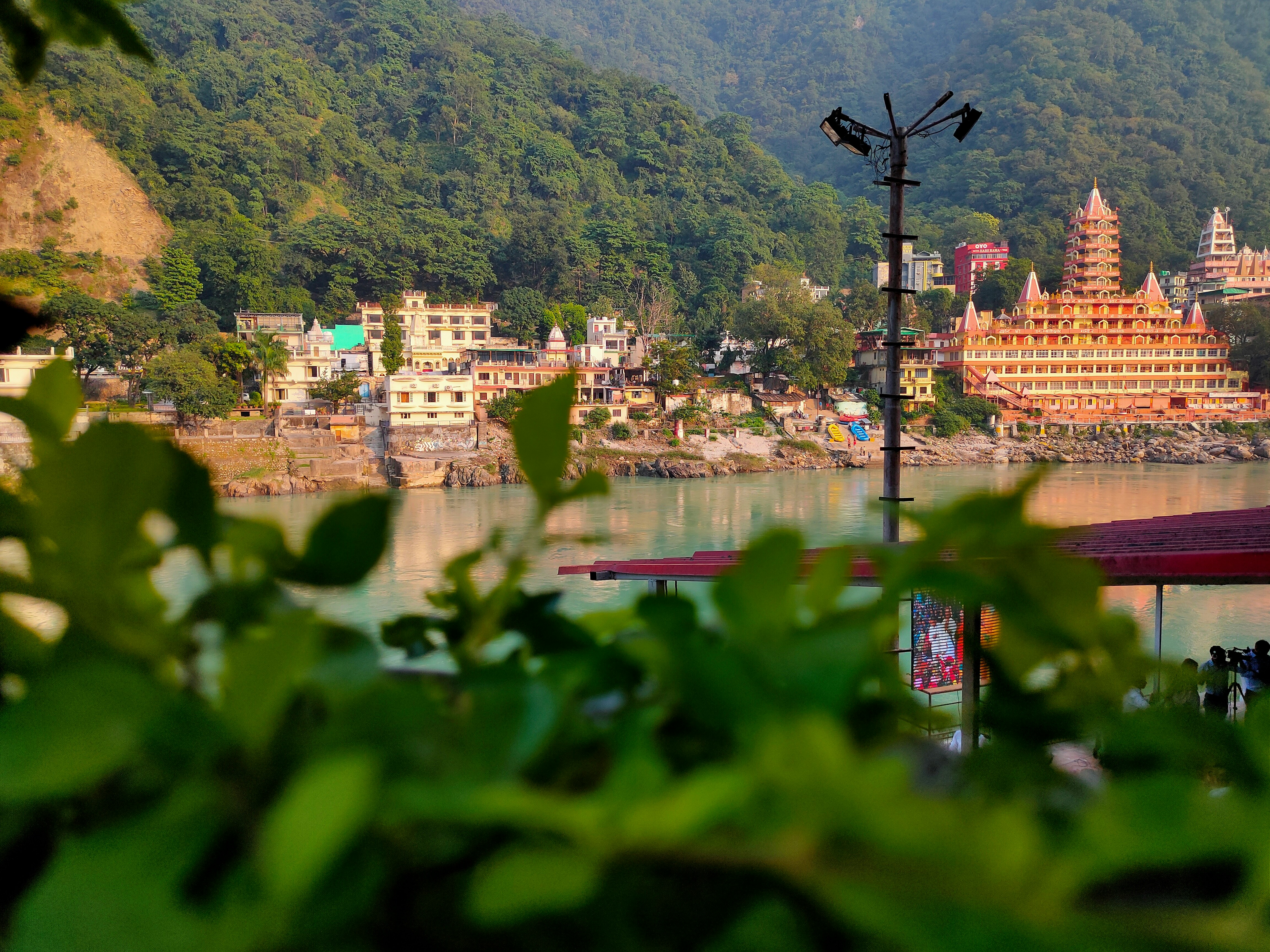
MC: Is there anything that we didn't touch on that you would want to share with our audience?
SH: One thing was that the pollution was very striking the day that I arrived; the air quality was purple, meaning hazardous, and it was red the rest of the time we were in Delhi. I tried to get to the bottom of what was causing it, and I was told different things: it's a combination of sharecropping, slash-and-burn farming techniques, and heavy carbon factories. Delhi has over 33 million people, so there are a lot of cars as well.
But I did a little bit of research about the U.S. and the E.P.A., and I read that our air quality during the Industrial Age was similarly dirty. And now we're in this time of deregulation, and I keep thinking about what we do if we roll back regulations that help to clean the air and water. I think we need to really cherish where we are and continue to move the needle in terms of access to clean resources. The Ganges River ceremony really hammered that home for me, because that part of the river was very clean, because it was like the first town after the Himalayan mountains, but there are parts that are not as clean. And it showed me how Earth is part of our existence and how we're connected to the earth. That was just another piece for me coming home from a place that's really struggling with pollution.
